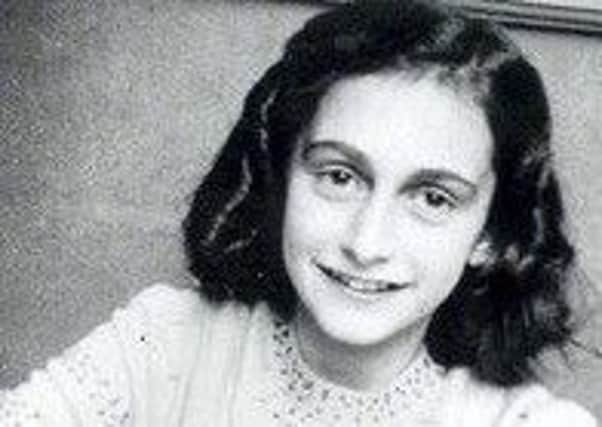Anti-semitic hate murdered Anne Frank and now it is returning '“ Christine Jardine


A little over four years ago, I emerged from the dark tunnel of the Yad Vashem Holocaust memorial in Israel into a bright sunny morning.
The metaphor is not only inescapable, but a deliberate feature of a journey through the museum which chronicles one of the darkest periods of modern history through the stories of those who experienced it.
Advertisement
Hide AdAdvertisement
Hide AdUnlike any other museum, or memorial I have ever visited, I left it with an overwhelming sense of relief that this horrific phenomenon was in our past.
Now, half a decade on, I find myself haunted by the fear that it may not be quite as firmly rooted there as I believed.
And I am not alone.
Over the past few months, I have been at a number events where members of the Jewish community have shared with me their concerns over the growth of anti-semitism.
At Westminster, I have taken part in more than one debate prompted by evidence of the re-emergence of the 20th century’s greatest evil.
Then last Sunday it was confirmed that the Scottish Parliament has been told that many people feel its impact so strongly that they are considering moving elsewhere.
I have not been able to put that thought out of my mind since.
I was born less than two decades after the end of the Second World War.
Much of what is now regarded as history was then the collective memory of my parents’ and grandparents’ generations.
Advertisement
Hide AdAdvertisement
Hide AdI clearly remember the day, shortly after hearing of Anne Frank’s story for the first time, that I tearfully challenged my parents to explain to me why, and how, anybody could be treated this way?
They chose not to focus on any villain of that period but to tell me instead of all those who had fought to protect Europe’s Jewish community, of heroic tales of defiance and imbue me with a belief that good does triumph.
I have been particularly grateful for their guidance recently as I have heard, not just the fears, but the evidence of anti-semitism, and other forms of racism, in this country.
The most recent figures for 2018 show the second highest number of anti-semitic incidents recorded in first six months of any year across the UK.
The highest figure was in 2017 when there was a record of 1,414 anti-semitic incidents over the entire 12 months.
Those included violent assaults, offensive graffiti and abusive behaviour. None of it acceptable.
But those are just figures on a page.
What really conveys the anxiety of the situation are the words of the director of the Scottish Council of Jewish Communities, Ephraim Borowski.
He is quoted as having told a cross-party committee of MSPs that many Jews in Scotland currently feel “alienated and vulnerable” and that is why they are considering their future.
Advertisement
Hide AdAdvertisement
Hide AdI cannot believe any reasonable person can be happy to read, or to have heard, those words. What has gone, or is going, wrong in our society that anyone is being made to feel that way?
And please do not anyone try to tell me that this is being exaggerated or is without basis.
One of the most offensive aspects of last week’s coverage was, for me, the Twitter messages I received telling me this was all a political construct to discredit a particular political party. Seriously. Although I must emphasise it was not by that party or any of their representatives.
Surely we can all see what is going on around us?
I have chosen to write this article about anti-semitism, but it could just as easily have been about Islamophobia.
Following recent visits to my local mosque to meet the community, I was bombarded with abusive tweets and Facebook messages, none of which I would grace with repetition.
But the theme was clear and the reason for concern very real. The ‘why’ is more difficult. Some commentators will point to the growth of identity politics across the world.
Once you begin to define your politics in terms of who you are, rather than what you believe, do you begin to define everyone by whether they are like you, or not?
Do you begin to look at everything in the world in terms of them and us?
Advertisement
Hide AdAdvertisement
Hide AdJust recently our country has been going through the most divisive period probably any of us can remember.
Can it be just a coincidence that we are seeing an increase in racism?
Oh, I know there are other commentators who would highlight the impact of international incidents, wars and terrorism.
The truth is probably somewhere between or a combination of identity politics and international influences, and in a way it is much less important than the recognition that it exists.
Sunday 27 January is Holocaust Memorial Day.
It marks the liberation of Auschwitz, a place whose name is the very epitome of the worst that mankind can do, and has done, to one another.
Every time I am reminded of that horror I choose, as I was taught as a child, to remember that it was overcome by humanity at its best.
Those of us with any influence on society’s direction have a responsibility to ensure our current communities are protected by that humanity.
